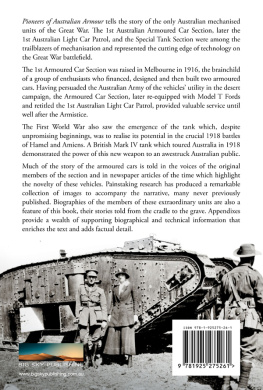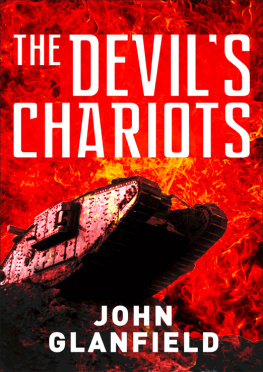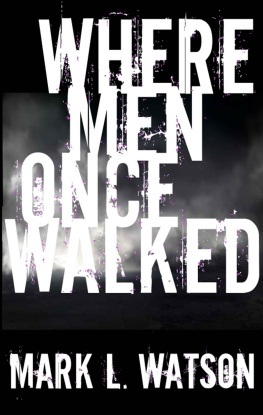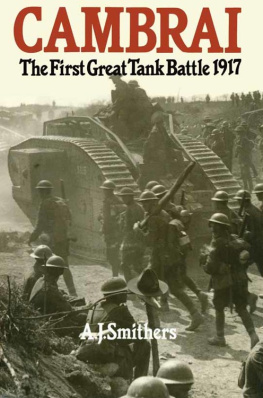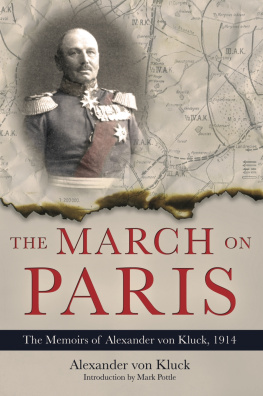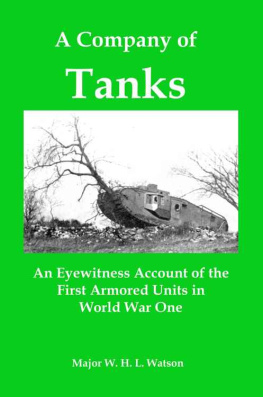This edition published in 2014 by
Pen & Sword Military
An imprint of
Pen & Sword Books Ltd
47 Church Street
Barnsley
South Yorkshire
S70 2AS
This book was first published as A Company of Tanks
by William Blackwood & Sons, Edinburgh & London, 1920.
Copyright Coda Books Ltd.
Published under licence by Pen & Sword Books Ltd.
ISBN: 9781783463152
EPUB ISBN: 9781473850149
PRC ISBN: 9781473850323
A CIP catalogue record for this book is available from the British Library
All rights reserved. No part of this book may be reproduced or transmitted in any form or by
any means, electronic or mechanical including photocopying, recording or by any information
storage and retrieval system, without permission from the Publisher in writing.
Printed and bound in England
By CPI Group (UK) Ltd, Croydon, CR0 4YY
Pen & Sword Books Ltd incorporates the imprints of Pen & Sword Aviation, Pen & Sword
Family History, Pen & Sword Maritime, Pen & Sword Military, Pen & Sword Discovery, Pen
& Sword Politics, Pen & Sword Atlas, Pen & Sword Archaeology, Wharncliffe Local History,
Wharncliffe True Crime, Wharncliffe Transport, Pen & Sword Select, Pen & Sword Military
Classics, Leo Cooper, The Praetorian Press, Claymore Press, Remember When, Seaforth
Publishing and Frontline Publishing
For a complete list of Pen & Sword titles please contact
PEN & SWORD BOOKS LIMITED
47 Church Street, Barnsley, South Yorkshire, S70 2AS, England
E-mail:
Website: www.pen-and-sword.co.uk
CONTENTS
INTRODUCTION
W .H.L. Watson began his service in the Great War as a British Army motorcycle despatch rider. He saw active service during the key battles of 1914 and early 1915. Eye witness accounts of these early clashes are comparatively rare and Watsons wonderfully personal account provides a welcome insight from an unusual perspective.
Watson and his colleagues then formed part of the Royal Engineers Signal Service and these riders were originally volunteers, some of whom supplied their own machines. His remarkable account of his service as a courier in the Great War details the experiences of these brave young men and provides a unique primary source account of life at the sharp end during the titanic struggles fought out in Northern France and Belgium.
His evocative description of the actions of the British Expeditionary Force is a key source and is essential reading for anyone interested in the history of the Great War. Highly detailed, but nonetheless accessible this superb volume is greatly recommended for serious enthusiasts and casual readers alike.
During the key battles of 1914 and early 1915. Watson and his colleagues formed part of the Royal Engineers Signal Service and these riders were originally volunteers. The motor-bicycles on which Watson and his colleagues rode were unreliable and likely to break down at any point and frequently refused to start. The Sunbeam 3 horsepower was the model of choice and these under powered work horses saw the B.E.F. through the initial battles of the war.
The British Expeditionary Force or B.E.F. was the name given to the small force sent to the Western Front during World War I. Planning for a British Expeditionary Force began with the Haldane reforms of the British Army carried out by the Secretary of State for War Richard Haldane following the Second Boer War (18991902).
German Emperor Kaiser Wilhelm, who was famously dismissive of the B.E.F., reportedly issued an order on the 19th of August 1914 to exterminate the treacherous English and walk over General Frenchs contemptible little army. Hence, in later years, the survivors of the regular army dubbed themselves The Old Contemptibles. However it should be noted that no evidence of any such order being issued by the Kaiser has ever been found. It is highly likely that the order was in fact a British propaganda invention, albeit one often repeated as fact.
Nonetheless by the end of 1914 - after the battles of Mons, the Le Cateau, the Aisne and Ypres - the old regular British army which Watson knew had indeed been wiped out, although it managed to do its duty and stop the German advance.
Under the terms of the Entente Cordiale, the British Armys role in a European war was to embark soldiers of the British Expeditionary Force, which consisted of six infantry divisions and five cavalry brigades which formed the I Corps and the II Corps. In October 1914, the 7th Division arrived in France, forming the basis of the III Corps and the cavalry had grown to form the Cavalry Corps of three divisions. By December 1914, the B.E.F. had expanded to such an extent that the First Army and the Second Army were formed.
William Watson was a young Oxford post-graduate at the outbreak of the First World War in 1914. Along with several friends from Oxford he enlisted in the army expecting the war to last six weeks.
His story, first published in 1915 and constructed from a series of letters that he sent home from France and Belgium during the first part of the war is one of the best accounts of the early B.E.F.. Even though the letters that are the basis of this story were subject to military censorship at the time, and there is certainly a degree of putting a brave face on things, there are still glimpses of the true horror of the First World War and the steadfast bravery of the soldiers of the B.E.F..
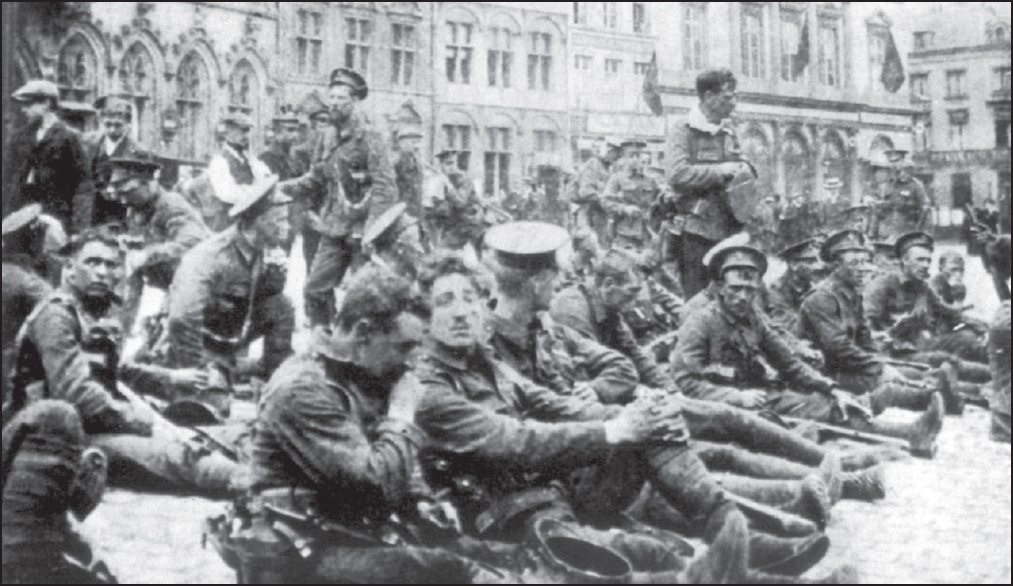
British troops from 4th Royal Fusiliers resting in the square at Mons 22nd August 1914, the day before the Battle of Mons.
Watson is able to depict the considerable confusion which arises in any military campaign. The fog of war is particularly prevalent in this account and, as they had no modern communications, the despatch riders assumed a very significant role in maintaining contact between the various units and chain of command. The reader soon develops a real sense of the importance of this. There are numerous excellent descriptions of the movements of troops, the areas that were covered and the people, both military and civilian which Watson met.
Although he was from a very privileged background, Watson quickly adapted to the new reality; however, a strong feeling of his elevated status in society pervades the book. Inevitably, due to his background Watson was offered a commission and his first book ends in early 1915 after his adventures as a despatch rider end. Watson then went on to become a tank commander and it is those memoirs which form this volume. Early in 1917, as his memoir testifies records, Watson decided the tank might become a war-winning innovation. Accordingly he volunteered for the Heavy Branch of the Machine Gun Corps - which later became the Tank Corps. After a somewhat brief period of training Watsons tank company was thrown into action in April 1917 in what was to become known as the blood-tub battle of Bullecourt. Following rest and re-fitting he also fought at the battle which became known as Third Ypres, otherwise known as Passchendaele. At the heart of the book is the authors vivid description of the battle of Cambrai in November 1917, the major battle where tanks were used en masse for the first time. Watson describes the initially successful breakthrough, and the subsequent German counterattack which snatched back most of the ground as had been won by the British in the initial tank thrust. A vivid writer, Watson documents the awful conditions which prevailed inside the tanks, and encapsulates the sense of the extreme discomfort caused heat, petrol fumes, noise, flying splinters of metal and captures the frequent sense of confusion which was endured by these early tank men on the battlefield. The remainder of the book is dedicated to Watsons experiences in the final Allied counter offensive in 1918 from the battle of Amiens to the break-through of the Hindenburg Line. This is an exceptional, extremely important and well written primary source account of the early days of the tank.
Next page


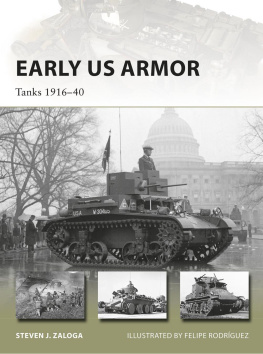
![William Henry Lowe Watson - A Company Of Tanks [Illustrated Edition]](/uploads/posts/book/291202/thumbs/william-henry-lowe-watson-a-company-of-tanks.jpg)

